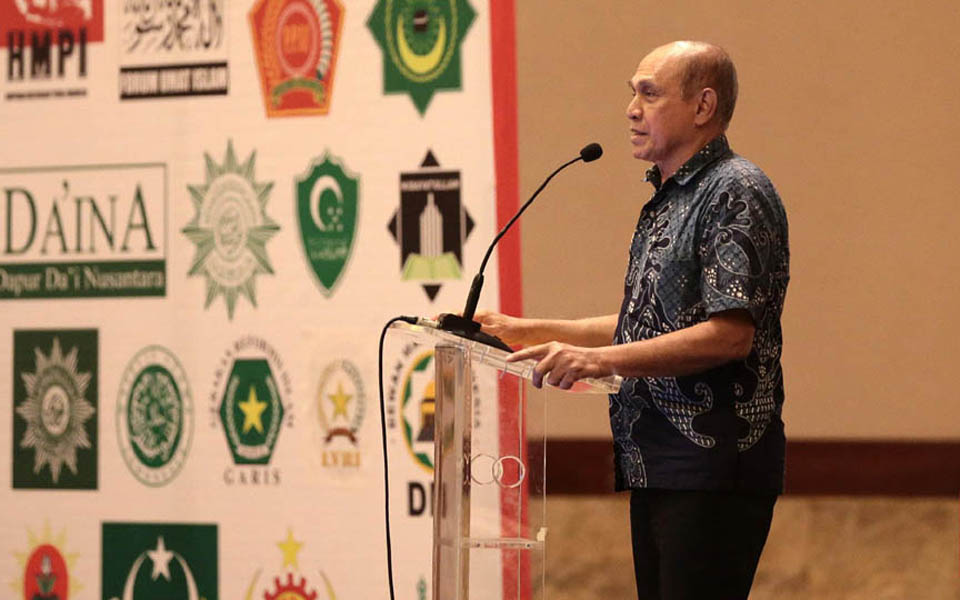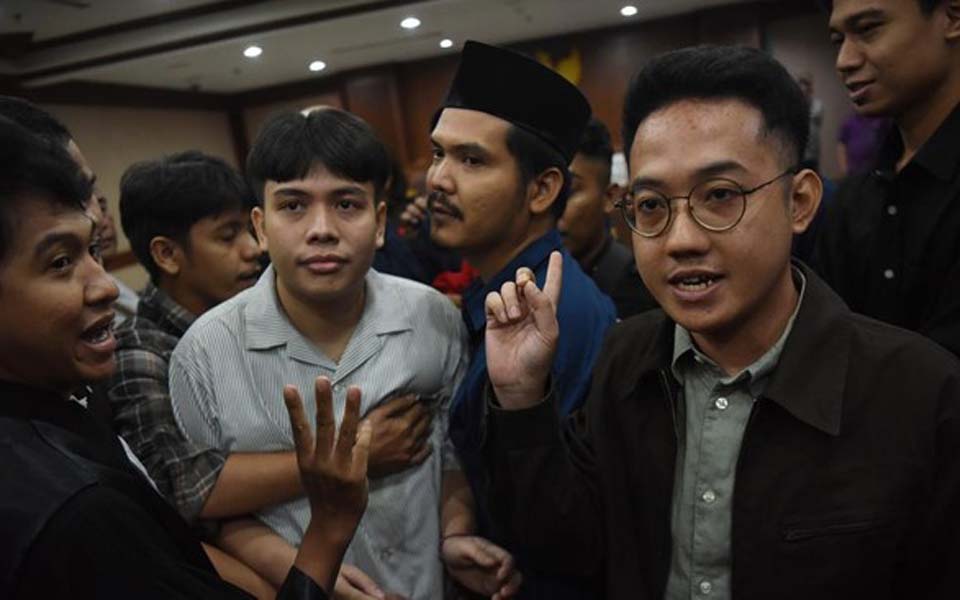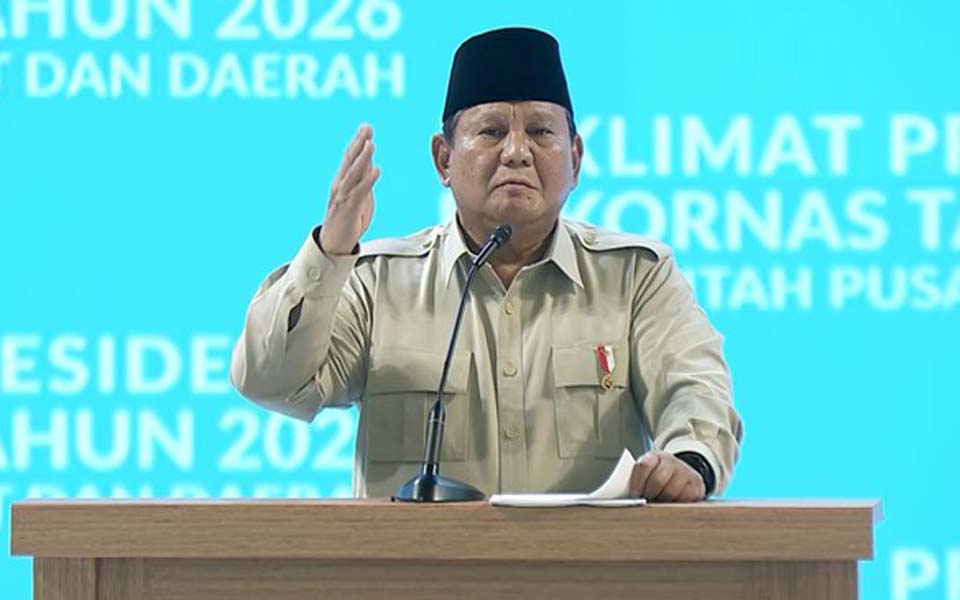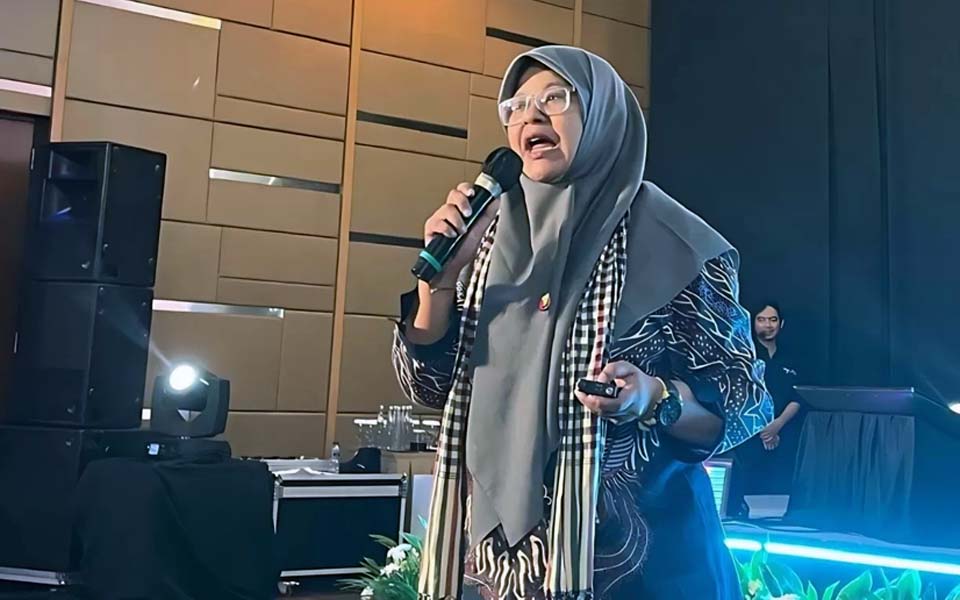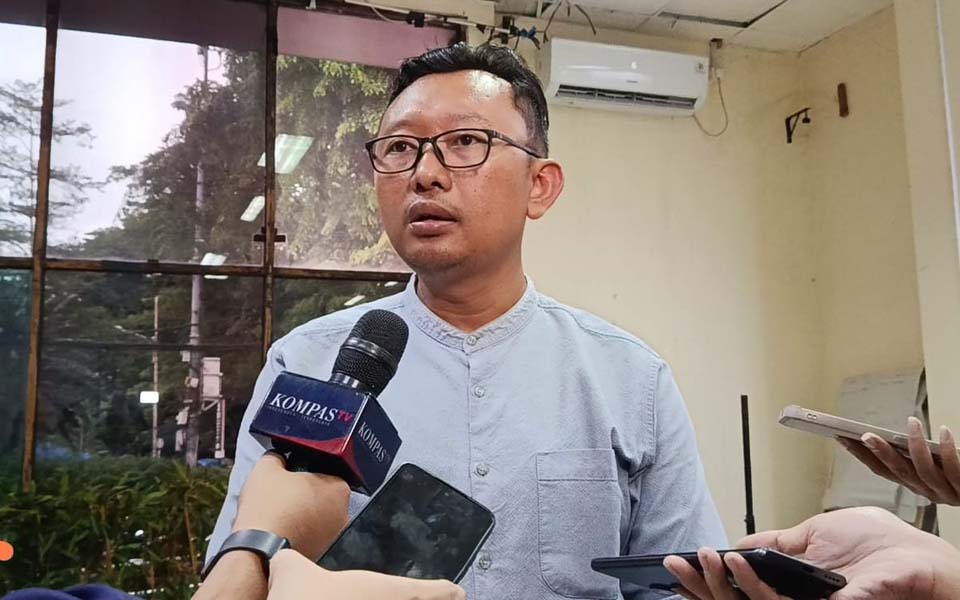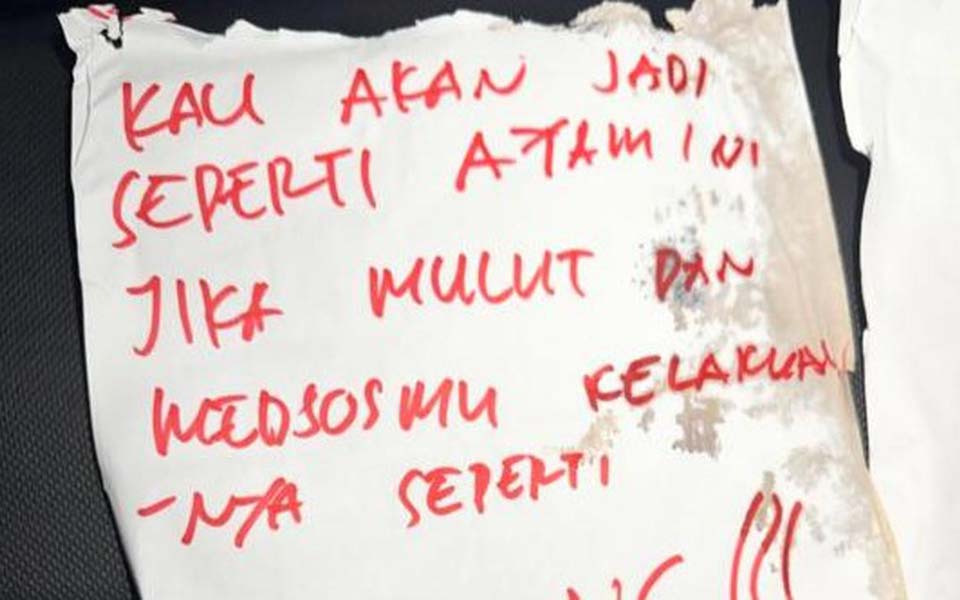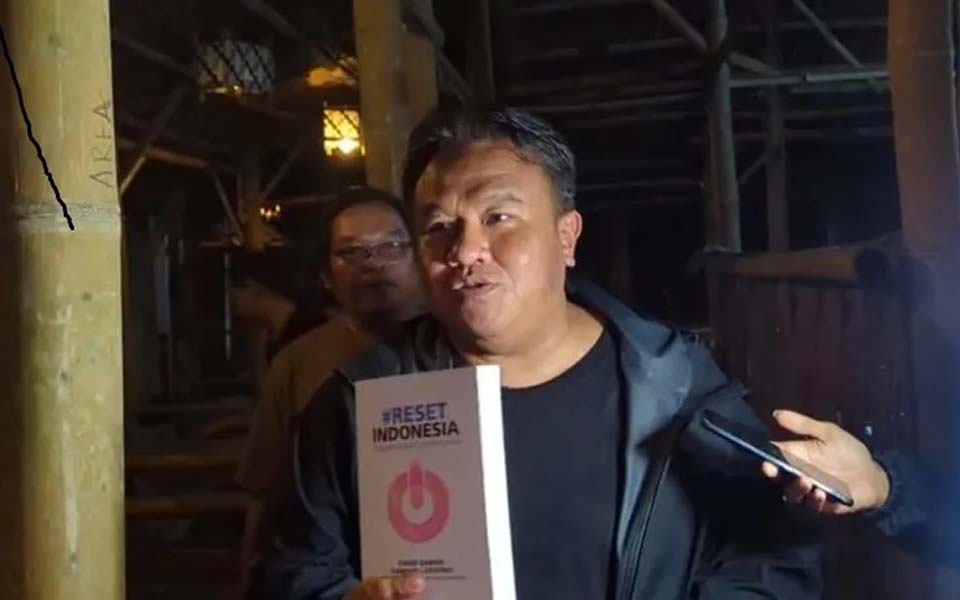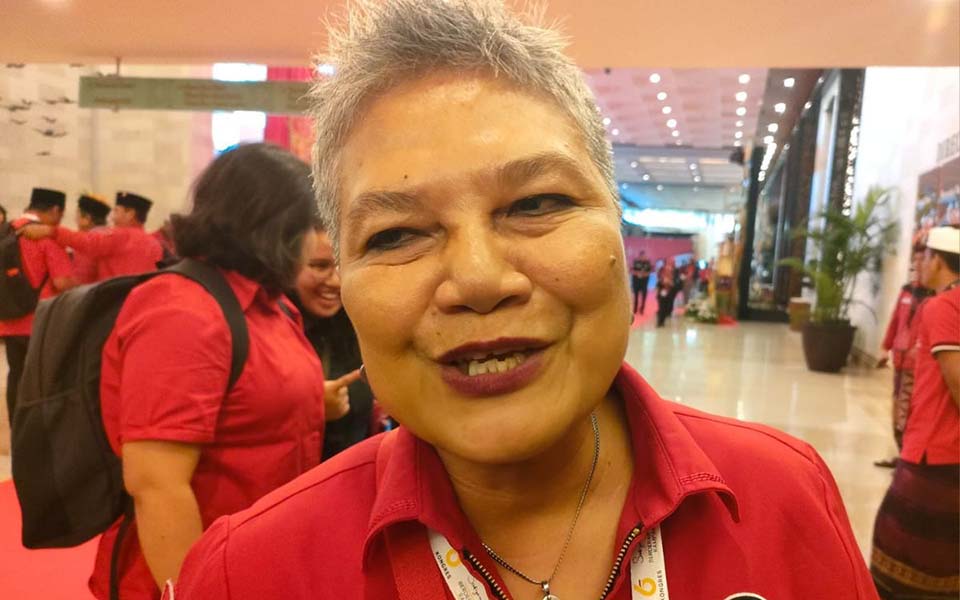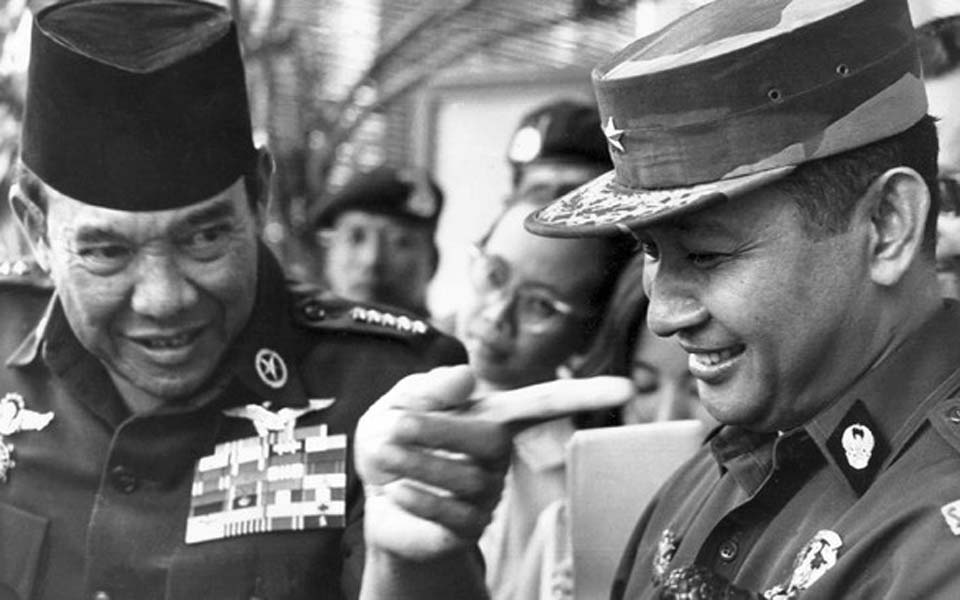Arif Hulwan Muzayyin, Jakarta – Efforts by the Indonesian Legal Aid Foundation (YLBHI) and the Jakarta Legal Aid Foundation (LBH) to set history straight with regard to the alleged September 30 Movement-Indonesian Communist Party (G30S-PKI) coup in 1965 are being seen by some as resurgence of communist ideas and a violation of the law.
Former Army Strategic Reserves Command (Kostrad) commander retired Major General Kivlan Zen says that the discussion on the 1965 affair at the YLBHI can be categorised as spreading communist ideas.
This violates Law Number 27/1999 on Revisions to the Criminal Code (KUHP) related to crimes against state security and Tap MPRS Number XXV/MPRS/1966 on the dissolution of the PKI.
The first step that should be taken is to report the foundation which was established by the late Adnan Buyung Nasution to police in relation to these legal violations.
“I will propose to the Kepolisian [National Police], the Menko Polhukam [Coordinating Minister for Security, political and Legal Affairs] and the Menkumham [Justice and Human Rights Ministry] that the LBH be closed down. I will report them because they are reviving communism”, he said when contacted by CNN Indonesia on Monday September 18.
These remarks were in response to allegations that Zen was one of the masterminds behind the attack on the YLBHI offices in Jakarta on Monday September 17.
“Go ahead and make accusations, that’s [your] right. It wasn’t me that mobilised [them]. But if I encouraged them through speeches, books, I have no problem with that. I am indeed one of those that is most outspoken in opposing the revival of communism”, he said.
According to Zen, the protesters who came from a number of different social organisations were simply using their democratic right to express an opinion. The demonstrators became aggressive, he said, because the YLBHI staged an “Asik Asik Aksi” event and sang the song Genjer-Genjer.
“The song Genjer-Genjer is symbolic of the PKI, it was sung when [Gerwani] were slaughtering the generals, it was sung during war. So if the song was being sung well it means they were ready for war. So the masses (demonstrators) were provoked (in to becoming anarchistic)”, claimed Zen.
Zen is also calling on all parties not to bring up the G30S 1965 affair again. According to Zen, the [government’s] current [version] of events surrounding 1965 affair is correct because it went through a legal process before a Extra-Ordinary Military Tribunal (Mahmilub) [created by Suharto in October 1965] which examined and tried the prisoners (military personnel) who were accused of being involved in the movement.
“Enough, don’t reopen old wounds, later Indonesia will be a mess. Do you want there to be civil war?”, said Zen who was declared a treason (maker) suspect by the police late last year.
Earlier YLBHI advocacy head Muhammad Isnur confirmed that the event held by the foundation was not an attempt to revive communism and that those who attended the event had absolutely no link with the PKI.
“Inside it was all elderly people, elderly women, where do they get the nerve to treat them like that. We can prove everything that happened last night”, he asserted.
Meanwhile YLBHI chairperson Asfinawati said in a press release that the “Asik Asik Asik” event was held to express their concern over the forced closure of the histological seminar on 1965 being organised by the LBH.
The event was simply an artistic performance of songs and poetry readings. Asfinawati also denied accusations by the protesters that the song Genjer-Genjer was sung at the event. (arh/djm)
Notes
1. Tap MPRS XXV/1966: Provisional People’s Consultative Assembly Decree Number XXV/1966 on the Dissolution of the Indonesian Communist Party and Prohibitions on Marxist, Leninist and Communist Teachings.
2. The Javanese folk song Genjer-Genjer, which tells the story of the genjer (lettuce) plant that gained popularity during times of extreme poverty due to its abundance amid high food prices, is associated with the PKI affiliated women’s organisation Gerwani or Women’s Movement which was banned and then demonised by Suharto’s New Order dictatorship following the 1965 anti-communist purge.
[Translated by James Balowski. The original title of the article was Kivlan Zen Usul Pembubaran LBH Jakarta.]





